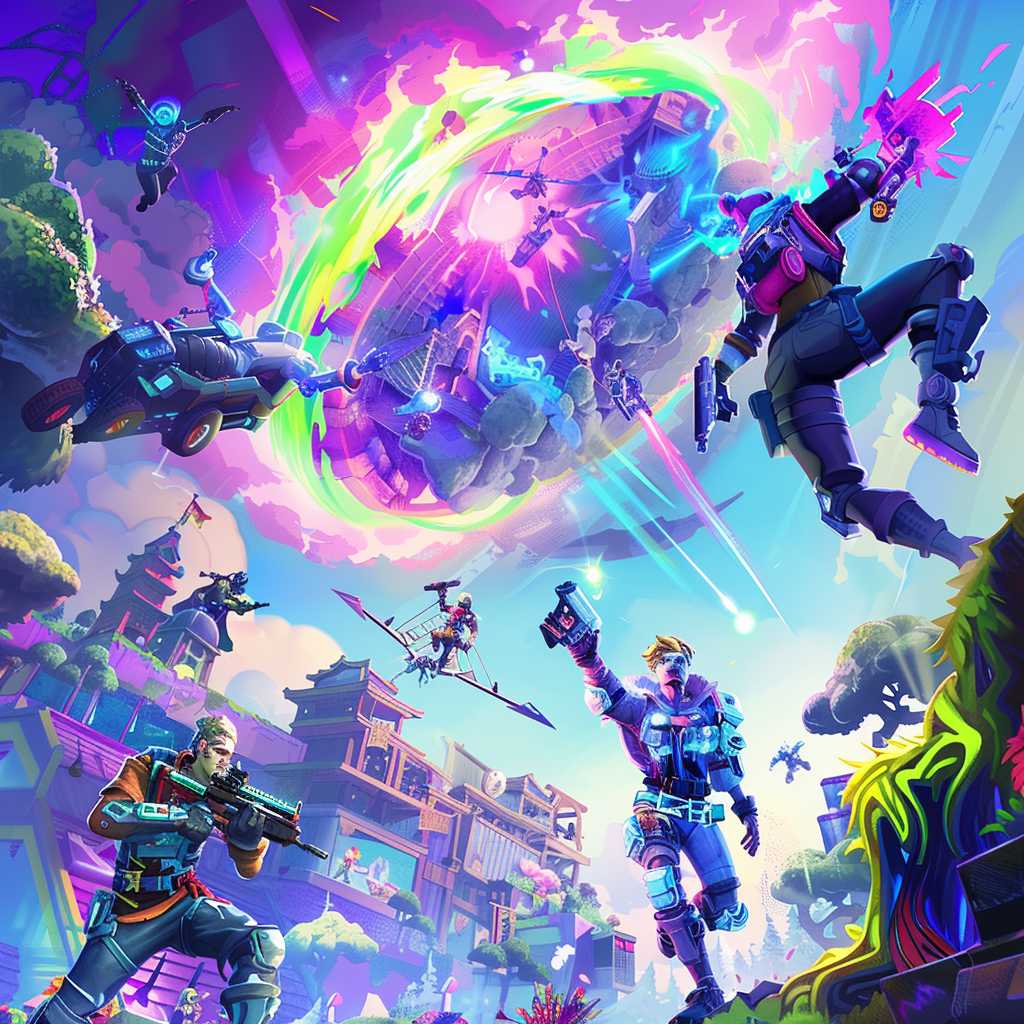The Evolution and Impact of Fortnite
Fortnite has evolved from a mere video game to a global phenomenon that continues to influence culture, media, and the video gaming industry. Since its release in 2017 by Epic Games, it has attracted millions of players worldwide, dominating the battle royale genre with innovative gameplay, regular updates, and a successful free-to-play model. This article aims to explore the facets of Fortnite’s development, its economic impact, unique aspects, and cultural relevance.
Origin and Development of Fortnite
Fortnite was first conceived as a cooperative tower defense and survival game where players could build fortifications to fend off zombie-like creatures. However, the game’s Battle Royale mode, inspired by titles like PlayerUnknown’s Battlegrounds (PUBG), rapidly outshone its original “Save the World” mode. Leveraging a free-to-play model with purchasable in-game cosmetics and battle passes, Fortnite became accessible to millions, making it one of the most hands-on examples of the ‘games as a service’ model.
Gameplay Mechanics and Features
The essential allure of Fortnite’s gameplay is found in its combative last-player-standing format, where 100 players drop onto an island with nothing but a pickaxe. Players gather resources, find equipment, and eliminate others to be the last one surviving. Its distinct building mechanics also set it apart: players can construct walls, ramps, floors, and roofs to create fortresses or instantaneous cover. These features not only add depth to the strategies employed but also afford a degree of expressiveness that is rare in the shooter genre.
Sociocultural Impact
Fortnite has transcended traditional gaming spheres and emerged as a significant player in social and cultural arenas. Popular dances like “flossing,” costumes, and lingo have infused into everyday life. The game has also ventured into unprecedented collaborations with major film franchises, musicians, and sports figures, thereby positioning itself as an omnipresent fixture in mainstream media. Moreover, Fortnite’s live events—such as virtual concerts featuring iconic artists like Travis Scott and interactive experiences tied to blockbuster movies—have redefined digital entertainment possibilities.
Economic Phenomenon
Fortnite’s financial success illuminated not just the profitability of microtransactions in a free-to-play model but also how games can form ecosystems for revenue generation. Their in-game currency “V-Bucks” allows players to purchase cosmetic items and pass upgrades—a driving force behind substantial revenues. Fortnite has materialized as an aspirational touchstone in esports as well, hosting tournaments with noteworthy prize pools that have elevated players to celebrity status in gaming circles.
Gender Dynamics Within Fortnite
Gender dynamics within Fortnite have been a topic of discussion within both academic research and popular discourse. Epic Games has made efforts to cultivate a more inclusive atmosphere by offering diverse avatars and practicing responsible in-game monetization strategies. However, like many online platforms, Fortnite is not absent struggles over harassment and inclusive spaces for women and non-binary players.
Fortnite’s Technological Innovation
On the technical front, Fortnite employs Epic Games’ Unreal Engine — celebrated for its cutting-edge graphic capabilities and regular updates that transform user experience. Server-side enhancements had improved player connection speeds and reduction in lag markedly—a clear nod to the game’s responsive development strategy catering to player feedback.
Global Esports Arena
Encouraging competitive play through their ‘Fortnite Champion Series’ among other events, Epic Games reinforced the notion that with proper engagement strategies, a free-to-play game can become a powerful headliner in esports. The accessibility of Fortnite plays a pivotal role here—consoles, PCs, smartphones, abilities which broaden demographic reach and participant accessibility.
Fortnite’s Educational Outreach
Interestingly, ‘creative mode’ in Fortnite has been used as an educational tool not just for entertainment but also for teaching concepts of architecture, geography, and logic through its sandbox-style environment. Initiatives like these raise conversations about the gamification of education and how schools might harness popular digital platforms for curricular engagement.
Challenges and Sentiments in the Gaming Community
Yet Fortnite confronts challenges as well: balancing professional-level play with casual fun leads to ongoing adjustments in game mechanics—a source of considerable debate among devoted fans. There are concerns about screen timing for younger audiences and responsible consumption while balancing entertainment value against social responsibilities.
